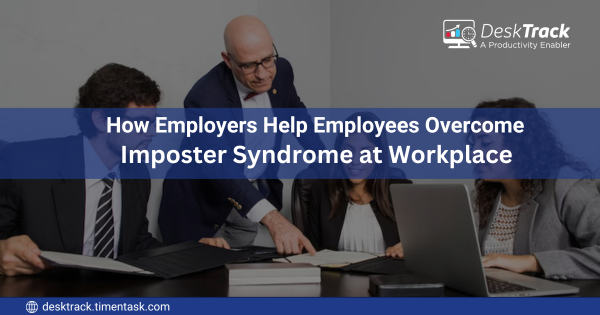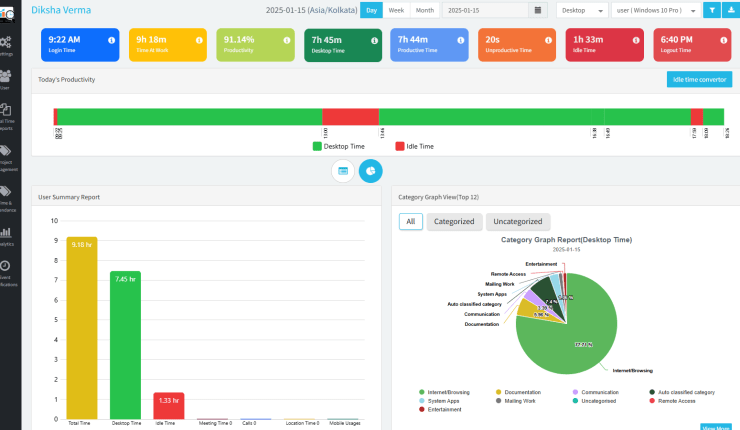In today’s competitive world, many employees are battling with Imposter Syndrome. This phenomenon is characterized by persistent self-doubts and the fear of being exposed to fraud despite being competent. This syndrome can significantly hinder professional growth and development.
It is essential to recognize the impacts of Imposter Syndrome on the workforce and employers play a key role in it. They can act uniquely and find different ways to create a supportive environment for employees.
In this blog, we will find 16 super strategies that employers can implement to help their employees overcome imposter syndrome in the workplace.
Ways Employers Can Help Employers Overcome Imposter Syndrome
Let us find out 16 best strategies that can help employers to aid their employees overcome Imposter Syndrome and perform better in their work.
Provide Managers with Relevant Training
Managers are like advocates for their teams. It is essential to equip them with training on recognizing and addressing imposter syndrome to create a more understanding and empathetic leadership approach. Resources such as workshops and seminars can be helpful for managers in identifying signs of self-doubt and implementing strategies to support their team members effectively.
Build Open Relationships from the Beginning
It is essential to establish a foundation of trust to combat Imposter Syndrome. Also, encouraging open communication from the outset can allow employees to express their concerns without fear of judgment. A transparent and communicative workplace can help employees feel more secure in their roles and eliminate the effects of Imposter Syndrome.
Play to Your Employees’ Strengths
It is essential to identify and highlight individual strengths as it can be a powerful antidote to Imposter Syndrome. After recognizing and utilizing employees’ unique skills, employers not only boost confidence but also create an environment where individuals feel valued and acknowledged for their contributions.
Have Honest Conversations
Employers must engage in discussions and dialogues about Imposter Syndrome within the workplace. As a result, the syndrome will be normalized and it will help employees to realize that they are not alone in their struggles. It is essential to encourage vulnerability and shape personal experiences to promote a sense of comfort to employees with self-doubt.
Promote a Healthy Work-Life Balance
Employers need to recognize the importance of work-life balance in preventing and mitigating Imposter Syndrome. Employers need to encourage employees to prioritize self-care, set boundaries, and take breaks when needed to promote a healthy work-life balance. A healthy workplace environment is essential for maintaining mental well-being.
Create a Supportive Workplace Culture.
Employers can develop a culture that prioritizes support and collaboration over competition in the workplace. Employees who feel supported by their colleagues and superiors are more likely to overcome Imposter Syndrome. Also, they can implement mentorship programs and support networks to contribute to a sense of community within the organization.
Listen More than You Speak
Active listening is a powerful tool in addressing Imposter Syndrome. Taking the time to understand employees’ concerns and providing a compassionate ear can help build trust. Additionally, it allows employers to create support strategies for the specific needs of each individual.
Take Inclusion to the Next Level
Employers can promote diversity and inclusion to create an environment that prevents Imposter Syndrome. As a result, differences in the workplace are minimized, and it helps to celebrate unique perspectives and create opportunities for everyone to contribute authentically.
Give Credit Where It Is Essential
It is essential to acknowledge employees for their achievements to boost their confidence. It ensures that employees receive due recognition for their hard work and accomplishments. Also, publicly praising individuals for their contributions can serve as a powerful tool to prevent feelings of inadequacy.
Allow Employees Decision-making
When employees are empowered to make decisions related to their work they feel more confident. As a result, it promotes autonomy and trust among employees and promotes responsibility to demonstrate their abilities.
Leverage Strengths-based Assessments
Implementing strengths-based assessments can provide valuable insights into employees’ natural abilities and talents. Also, this approach can allow employers to align tasks with individual strengths, and promote a sense of competence. Additionally, it can also reduce the impact of Imposter Syndrome.
Offer Specific Positive Affirmation
Employers can initiate generic praise to promote positive affirmations. It helps to provide constructive feedback highlighting specific achievements and contributions to help employees believe in their capabilities.
Recognize their Strengths and Hard Work
Employers should regularly acknowledge and celebrate the hard work of their employees’ accomplishments to enhance their morale. It also helps individuals to internalize their achievements as a result they can counter the negative self-talk associated with Imposter Syndrome.
Assigning A Mentor
Employers can pair employees with mentors who have experienced similar feelings of self-doubt can be a powerful intervention. Mentors can employees by providing them guidance, sharing their struggles, and offering valuable insights on overcoming Imposter Syndrome.
Create a Culture of Accepting Failures
Failure is a natural part of professional growth so it is essential to encourage a culture where mistakes are viewed as opportunities to learn rather than reasons for self-doubt. Employers should also emphasize that setbacks are not indicators of incompetence but are stepping stones toward improvement.
Provide Training
Employers should offer training sessions to employees on overcoming Imposter Syndrome to address their self-doubt. These sessions can also contribute to a more empathetic and understanding workplace culture.
Know more about Imposter Syndrome here.
Conclusion
It is essential to address imposter syndrome as a collective responsibility that extends beyond individual efforts. Employers need to play a crucial role in creating a workplace culture that uplifts and supports employees. They can do so by implementing different strategies. Organizations can contribute to a more confident, empowered, and resilient workforce. To battle against imposter syndrome, providing an environment of understanding, appreciation, and support is the key to success.















